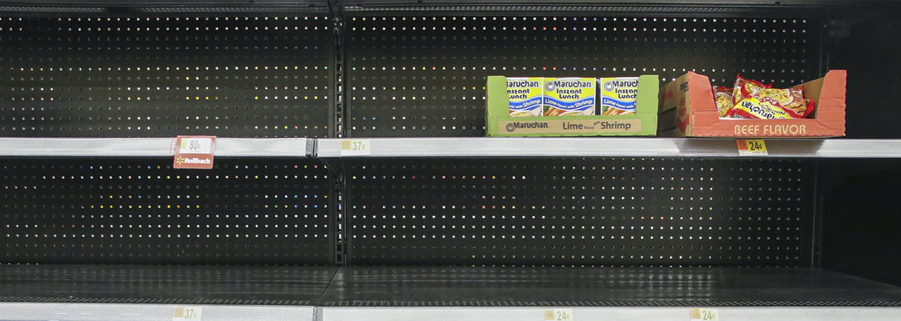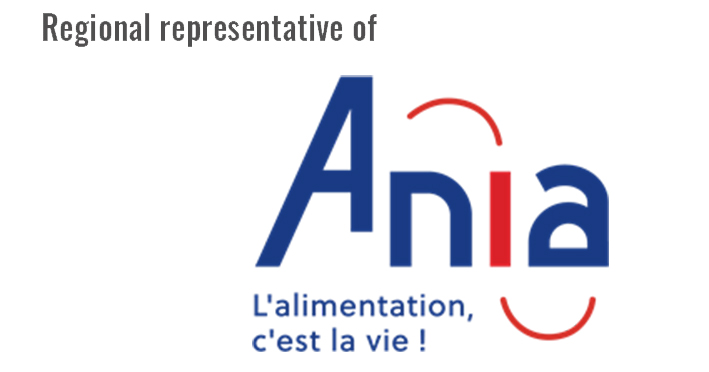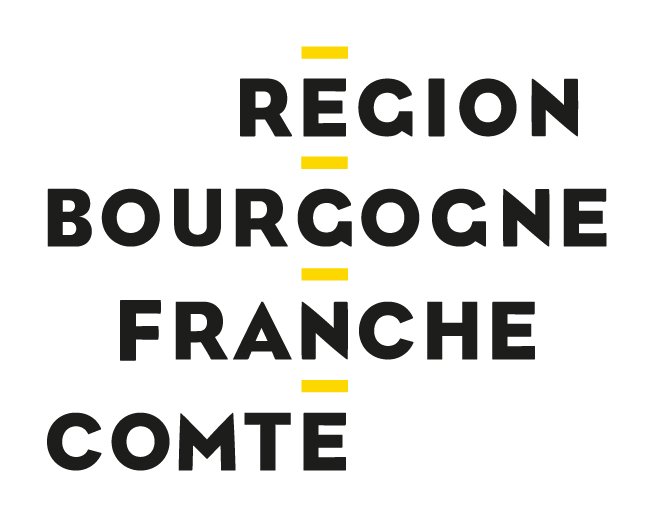21 September 2020 / Close-up on food trends / Vitagora publication / Markets and trends
Close-up on COVID-19, INTRODUCTION: Covid-19 and food business impact
Covid-19: what is the impact on food business?
This edition of Close-up on Food Trends was written in September 2020 and does not take into account any changes in the situation from that date on.
Introduction

Is Covid-19a game-changer?
January 1st, 2020: while 400,000 people gathered on the Champs Elysées in Paris to celebrate the new year, no-one in France anticipated that a major health crisis would soon be upon them. Continents away, in China, an unknown viral infection with symptoms similar to pneumonia, had appeared in the previous few months. While we started to hear talk of this "coronavirus" by the new year, the threat still seemed far away, unreal and largely abstract.
Mid-March 2020, the situation was upended. The contagion officially became a "pandemic", and Europe was one of the main clusters of infection. Two types of behaviours were noted in France: on the one hand, consumers indulged in panic buying, emptying supermarket shelves, fearing that they would be subject to the same restrictions imposed in Italy at that time. On the other hand, some consumers were detached, sceptical, feeling untouchable or indifferent.
Then, in the space of 72 hours, the closure was announced of all public spaces "non-essential to the life of the country", including schools. And, from the next day onwards, a ban on all travel outside of the home, or an indefinate period. Called a "confinement national" in French, this tight lockdown ended up lasting 55 days, causing upheaval in the lives of French citizens, requiring them to rethink how they worked, communicated, educated their children, shopped, or fed themselves... The same was true for businesses, with a progressively strict closure of the border and unheard of restrictions on export and retail circuits. The coronavirus was thus the origin of a triple crisis: health, economy and society.
Six months later, the health situation remains worrying on both a local and international level (in particular in South Amercia and the USA). It is thus difficult to develop hypotheses of what the "post-covid world" will look like. That said, it is important to observe and analyse the changes that have already taken place, and are still taking place, and to try to anticipate their long term impact.
Are we looking at a completely new world?
 It is easy to be tempted by over-simplifications: there will indeed be a "before" and an "after" regarding this crisis. But there are a number of continuities and interferences between the two situations, and it is unhelpful to fall into post-acopalyptic imaginings. While game changers such as the current health crisis modify certain trajectories and accelerate other trends, they do so on an existing foundation. The motivations behind consumers trends observed during the crisis have for the most part already been around for a number of years. The Covid-19 crisis and the lockdowns imposed in a number of countries may have accentuated these behaviours, but it did not create them.
It is easy to be tempted by over-simplifications: there will indeed be a "before" and an "after" regarding this crisis. But there are a number of continuities and interferences between the two situations, and it is unhelpful to fall into post-acopalyptic imaginings. While game changers such as the current health crisis modify certain trajectories and accelerate other trends, they do so on an existing foundation. The motivations behind consumers trends observed during the crisis have for the most part already been around for a number of years. The Covid-19 crisis and the lockdowns imposed in a number of countries may have accentuated these behaviours, but it did not create them.
“The Chinese use two brush strokes to write the word 'crisis. One brush stroke stands for danger; the other for opportunity. In a crisis, be aware of the danger - but recognize the opportunity.” So said John Fitzgerald Kennedy during a speech in April 1959.
What opportunities lie within the current health, economic and social crisis? Will Covid-19 accelerate some trends we already know of? In the context of a pandemic, that we could easily reoccur in the years to come, do we need to rethink the basics of food service and retail in France?
A special edition of "Close-up on Food Trends"
To go deeper into these questions around an unprecedented situation, we are publishing an edition of Close-up on Food Trends" entirely on the Covid-19 situation. A series of three articles will be progressively published (exclusive for Vitagora "Innovation" members - login to access the articles):
- Consumer behaviours: between constraints and desires
- E-commerce, proximity: a retail transformation hurried by the pandemic
- Reinventing food service: delivery, dematerialisation, social distancing... what des the future hold?
We hope that these insights will be useful for your food business activity in France, while keeping in mind that they are not predictions of the future. And that the events leading to upheavals in our way of living are not always the ones we were expecting.




 Home
Home

















